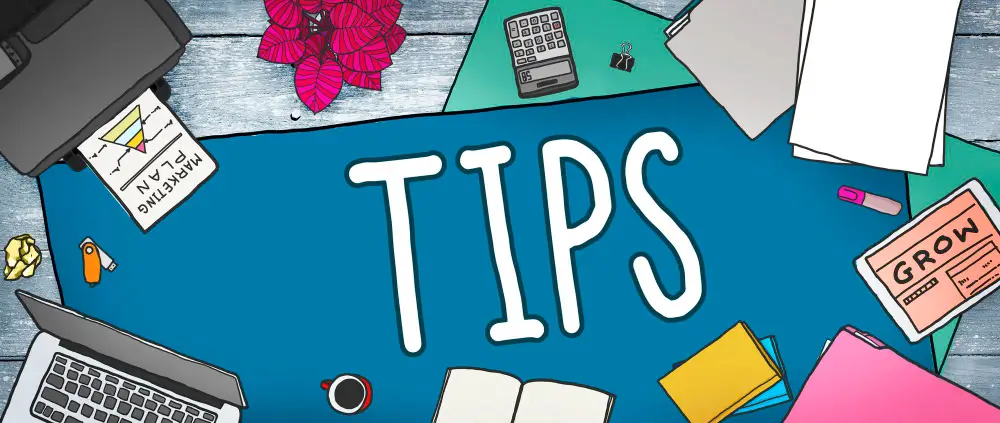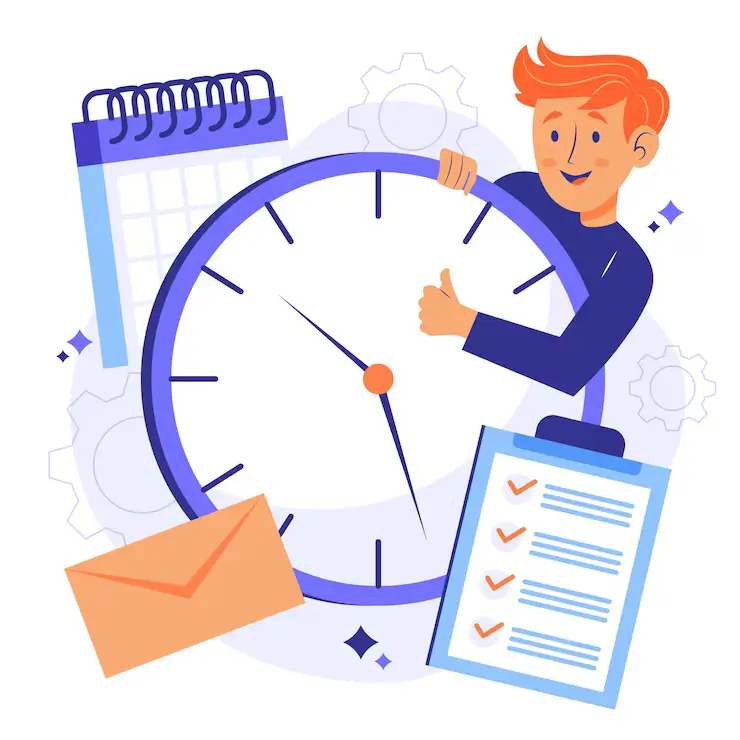A Lot of students today find tests, exams and other forms of intelligence assessments very stressful or may even cause them anxiety. However, if you can handle them properly, this will cause a significant improvement on the way you perform during exams. As a student looking for helpful and effective study tips? Or looking to boost your grades by studying the right way, then this article is just what you need.
Here is a detailed guide containing useful studying methods that will help you prepare in an effective way while usefully managing your time and achieving excellent results in your examinations. With the use of these techniques, nothing will stand between you and success in academics. Following are effective tips for studying that’ll help you move from an average student to an A student in no time.
1. Create a Realistic Study Schedule
It is true that exam preparation relies heavily on effective time management. This can be achieved by considering how much time is available for studying and the subjects that need to be studied, which will help you create an effective study schedule for the exam. It is ideal to break up study periods into 25-30 minute chunks followed by brief rests so as to maintain focus.
Arrange your schedule in a way that difficult subjects come first while easier ones may follow later. As you’ll need more hours dedicated to each topic that causes problems or does not seem right. You should also include revision sessions, meant for reviewing materials you have learned during your study. It is also important to keep track of your study and celebrate how far you’ve gone.
2. Make Use of Active Recall Techniques
In order to be able to retain the information you read for longer, you should make use of active recall strategies that stimulate your mind system to reinforce what has been learnt. These techniques such as self-quizzing, flashcards, retrieval and teaching others have the capability of storing that information in your long-term memory.
These techniques may also include practice questions and revision materials such as old examination papers, into your study schedule to improve the practice of active recall in examinations. Leading to an effective durable learning process.
– The Feynman Technique: Keep it simple.
– Flashcards for key terms or concepts.
– Include practice questions and past exam papers.
– Create or join a study group that discusses/explains topics to each other.
3. Optimize Your Study Environment
Your study area has a significant impact on your level of concentration and productivity. However, it is important that you create an environment that is learning-oriented and eliminates distractions. It is advisable to select a silent place that is well-lit, has an easy-to-sit chair and an appropriately-sized desk with all the required items at hand.
Also, ensure that your workspace is tidy and organized in order to aid clear thinking and reduce tension. You may want to try different forms of noise making while studying as well as utilizing website blockers among other similar devices in case digital distractions are what causes trouble. An ideal study environment encourages attention, focus, better learning and realized learning goals.
– Select a calm, bright room where there is a comfy stool and table.
– All needed things should be close by.
– Test background sounds or silence till you find out what helps you most.
– Employ internet site blockades or software programs to cut down on electronic diversions when studying.
4. Utilize Effective Note-Taking Strategies
Good notes taking is an important part of successful studying. In addition, note taking can be helpful especially for visual learners in creating a central theme or topic and branching out into related subtopics and details which promotes better understanding of the subject topic in focus.
Whichever learning approach you go for, regular review and revision should always be done to your notes. The act of rewriting or summarizing your notes helps in remembering them better because it emphasizes those parts that require more attention while recalling can be assisted too.
Having such an approach towards note taking that works well with you plus consistent reviewing makes learning better and organized. Hence easier and more effective, while studying becomes simpler as less time will be consumed during examinations preparation phase.
5. Practice Self-Care and Stress Management
As important as it is to devote time towards studying, likewise taking care of your physical and mental health is equally important. As neglecting self-care could lead you to exhaustion, low productivity level and poor exam performance. In order to be in good health one needs a quality 7-9 hours of sleep each night, a balanced diet which contains fruits, vegetables and less sugars.
One must always drink enough water to stay hydrated at all times. Regular exercising includes mild walking or fast workouts to reduce stress levels, boosting mood and improving overall brain functionality. Do well to also:
– Make getting involved in regular exercise part of everyday life.
– Use stress management methods such as deep breathing progressive muscle relaxation or meditation.
6. Collaborate with Study Groups
Studying together with friends can help you learn better and have more support while preparing for exams. If you want to get the best out of studying in groups, find responsible classmates who are ready to read with you, write down what you want to achieve as a group and assign different things for everyone to do during study hours for example, discussing difficult topics, exchanging opinions or identifying what each person doesn’t understand.
You may also teach others what you know more about to strengthen your own understanding and request topics that require more attention for self-study. However, you should create rules that will help avoid disturbances and if it is not effective then properly devote time into solo learning so all the hours spent studying are well utilized.
Summary
Exam preparation can be tough, but if you make use of the right methods and have a positive mindset, it can be done with ease and you can achieve your set academic goals. In order to do well in your exams, you must create a reasonable study timetable, use active recall techniques, optimize your study area, master the act of note-taking, pay attention to self-care and study with other learners.
We all learn differently, hence it is ideal to try out every study tip and strategy out there until you find the one that suits you best. Consistency is key therefore keep on doing what works for you most, whether it is successful or not. With commitment and the appropriate strategy, exam-related anxiety can be gotten rid of revealing what you are really capable of, and enhancing your overall performance in examinations.







